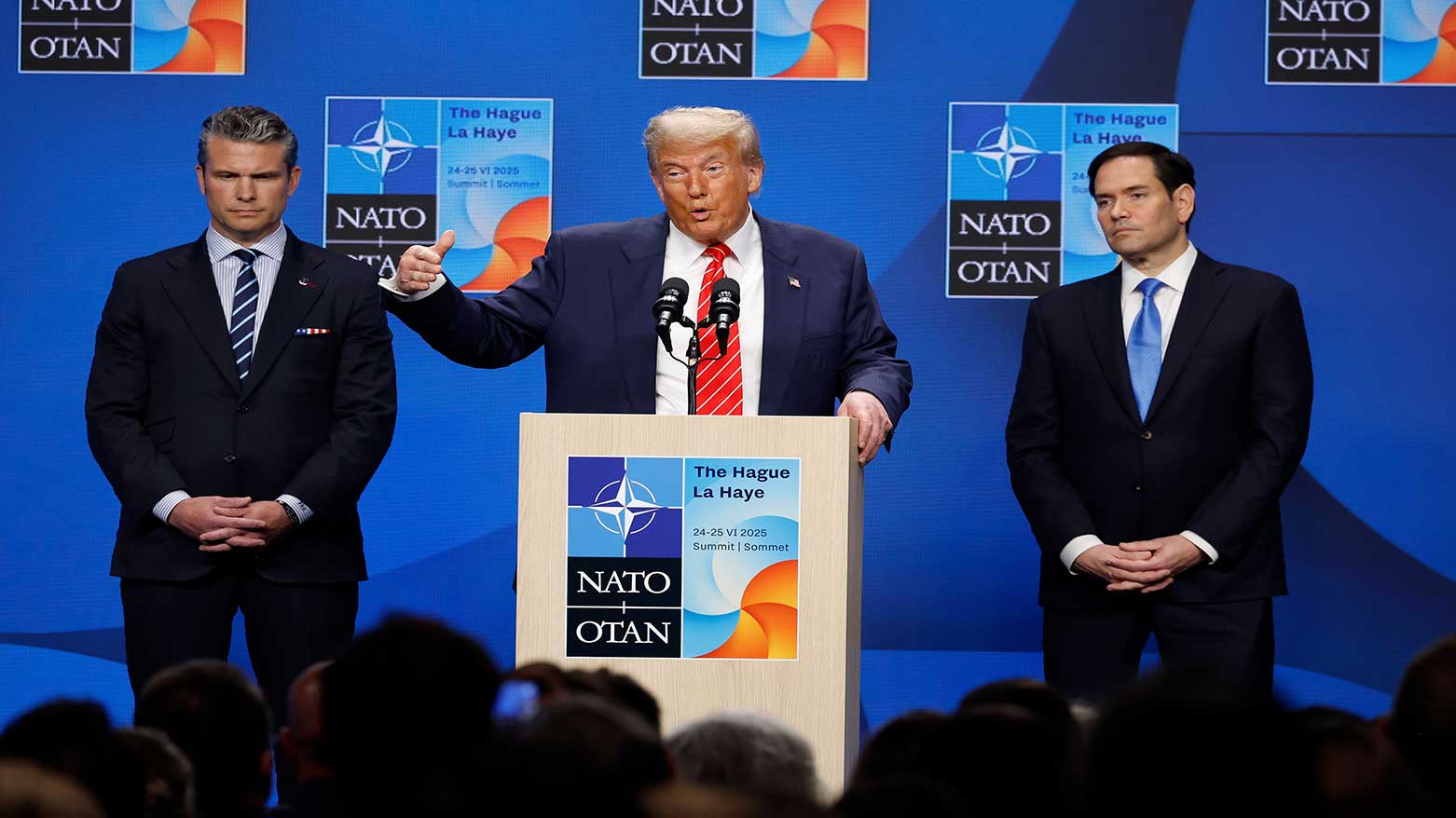Trump-Brokered Israel-Iran Truce Holds as Uncertainties Cloud Future of Nuclear Program, Gaza Conflict
Israeli Minister for Strategic Affairs Ron Dermer is reportedly headed to Washington for meetings with U.S. officials on Gaza and Iran-related issues, according to AP.

ERBIL (Kurdistan24) — It has been a week since the United States brokered a fragile truce between Israel and Iran, bringing an end to a bloody 12-day conflict that shook the Middle East and raised fears of a wider regional war. The ceasefire, secured a day after the U.S. deployed 30,000-pound "bunker-busting" bombs on three major Iranian nuclear sites, remains intact—for now—though much remains uncertain about what comes next, according to the Associated Press (AP).
The strikes on Iran’s nuclear facilities at Fordo, Natanz, and Isfahan reportedly caused significant damage, but fell short of fully destroying the infrastructure. While President Donald Trump claimed the sites were “obliterated,” and Defense Secretary Pete Hegseth said they were “destroyed,” a preliminary report from the U.S. Defense Intelligence Agency indicated only partial destruction.
Speaking on CBS’ Face the Nation, Rafael Grossi, Director General of the International Atomic Energy Agency (IAEA), confirmed that the targeted sites had been “destroyed to an important degree,” though he emphasized that Iran retains enough capacity to restart its program if it chooses. Full assessment, he said, depends on Iran allowing IAEA inspectors access—something yet to be granted.
Despite the ceasefire, the prospect of renewed U.S.-Iran negotiations remains tenuous. Trump initially hinted at easing sanctions and described a vision for Iran to become a “great trading nation” if it permanently halts its nuclear ambitions. However, that conciliatory tone quickly faded after Iran’s Supreme Leader, Ayatollah Ali Khamenei, declared that Tehran had delivered a “slap to America’s face.” Trump fired back, stating Iran had been “beat to hell,” and said he would reconsider any immediate sanction relief.
Though the White House confirmed that informal talks with Iran have begun, Iranian Foreign Minister Abbas Araghchi denied any agreement to restart formal negotiations. Trump himself gave mixed signals about future talks, saying at a NATO summit, “We may sign an agreement,” but adding, “I don’t think it’s that necessary.”
Khamenei’s role in guiding Iran's response also remains crucial. Despite recent health concerns and prolonged stays in underground bunkers during the height of the conflict, the 85-year-old cleric still wields near-absolute authority over Iran’s political and military institutions. Under his leadership, the Revolutionary Guard has grown into the dominant force within the Iranian state, complicating any efforts toward de-escalation or reform, according to AP.
Iran’s military retaliation to the U.S. airstrikes was limited to a missile salvo targeting a U.S. base in Qatar—an action U.S. officials dismissed as largely symbolic. However, the greater concern lies in Iran’s cyber capabilities. The U.S. Department of Homeland Security issued a bulletin last week warning of heightened risks from Iranian-backed hackers, especially against critical infrastructure sectors like water systems, energy, and defense.
Whether the Israel-Iran ceasefire will endure is uncertain. While Trump assured Israeli Prime Minister Benjamin Netanyahu that no further U.S. strikes are imminent, Netanyahu stated that Israel reserves the right to act unilaterally if Iran attempts to resume its nuclear program. Iran, for its part, continues to deny that the bombings caused significant damage.
Trump insists that Iran is not currently interested in reviving its nuclear activities, saying, “The last thing they’re thinking about right now is enriched uranium.” Still, he has called for renewed international inspections through the IAEA or other credible entities “that we respect, including ourselves.”
The bigger question looming over the ceasefire is whether Trump can now use this moment to press for progress on another front: the 20-month war in Gaza. Now, sources familiar with White House discussions say the president has pivoted toward securing a Gaza ceasefire and hostage deal with renewed urgency, according to AP.
On Friday, Trump declared, “We think within the next week we’re going to get a ceasefire,” though he provided no details to support the timeline. Israeli Minister for Strategic Affairs Ron Dermer is reportedly headed to Washington for meetings with U.S. officials on Gaza and Iran-related issues, according to AP.
For now, the world watches and waits. The bombs have stopped falling—but the questions remain.
